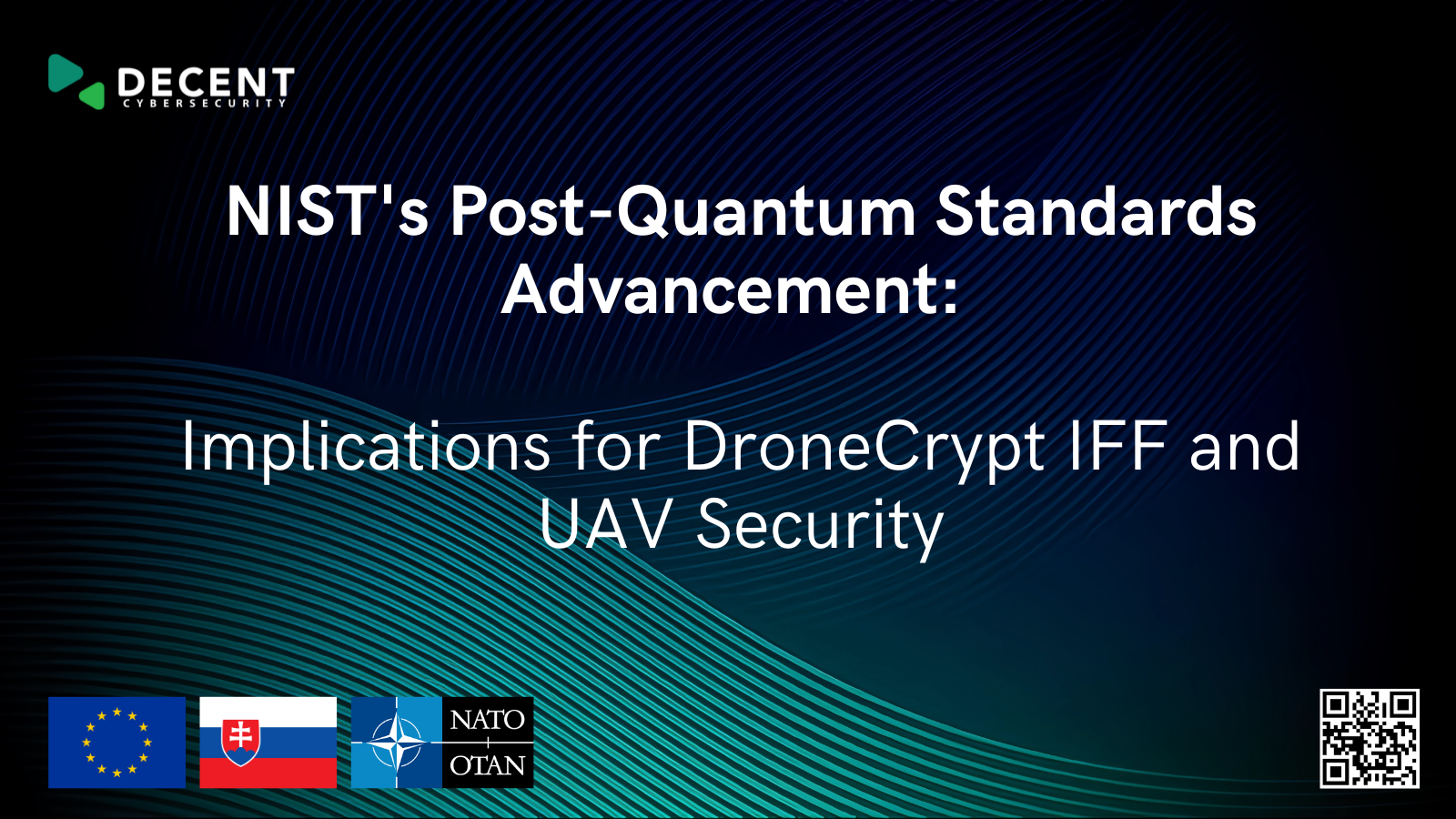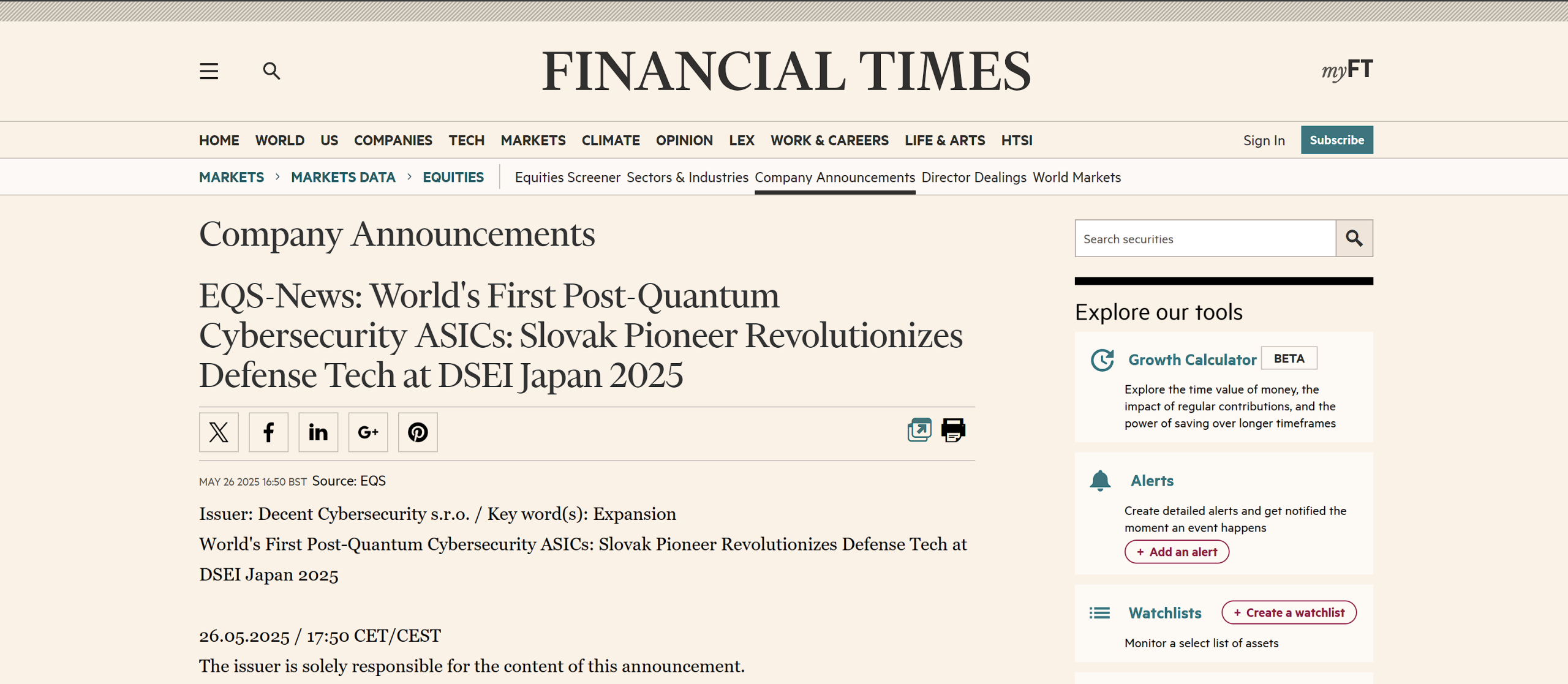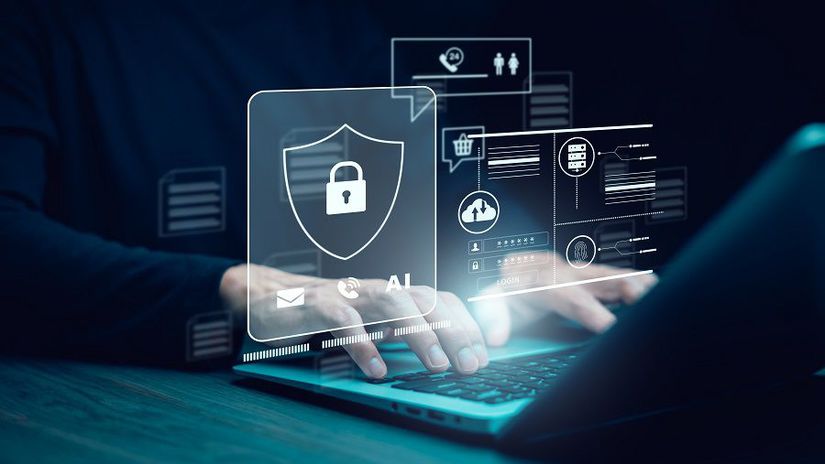NIST’s selection of 14 digital signature candidates for the second round of Post-Quantum Cryptography Standardization Process marks a shift in UAV identification systems. This development affects the implementation of authentication protocols in unmanned systems, with direct implications for DroneCrypt IFF’s architecture.
“The selection of these 14 digital signature candidates by NIST validates our approach to quantum-resistant drone identification,” says Matej Michalko, Founder and Chairman of Decent Cybersecurity. “We designed DroneCrypt IFF with post-quantum security in mind from day one. This standardization process confirms that the industry is moving in the direction we anticipated, particularly for critical infrastructure like unmanned aerial systems where security cannot be compromised.”
The standardization process validates DroneCrypt IFF’s current framework, which processes transactions in under 10ms with 50ms round-trip latency. The system operates within 10 KB/s bandwidth per drone, meeting requirements for both military and commercial UAV operations. These specifications ensure continuous operation in dense airspace environments where multiple identification requests occur simultaneously.
The selected algorithms will form the foundation for next-generation drone identification systems. DroneCrypt IFF’s architecture incorporates quantum-resistant protocols for authentication in single-unit and swarm configurations. The system maintains compliance with NATO STANAG 4193 and ADS-B standards while preparing for post-quantum requirements. This dual compliance ensures interoperability with current systems while preparing for future security demands.
Current implementations of DroneCrypt IFF in cross-border operations demonstrate the system’s capability to handle identification tasks under varying jurisdictions and regulatory frameworks. The performance metrics from field deployments show 99.99% identification rates in swarm configurations of 50 drones over three-month periods. These results come from real-world implementations across European airspace, where DroneCrypt IFF operates under multiple regulatory environments.
NIST’s 12-18 month evaluation period provides a framework for implementation timelines. Organizations operating UAV fleets must consider authentication system updates within this timeframe. DroneCrypt IFF’s architecture allows for protocol updates without operational interruption, maintaining identification capabilities during the transition to new standards. This update mechanism has been tested through multiple protocol iterations in active deployment scenarios.
The integration of quantum-resistant signatures affects military and civilian drone operations differently. Military applications require additional security layers for friend-or-foe identification, while civilian operations focus on regulatory compliance and air traffic management. DroneCrypt IFF addresses both sectors through separate protocol implementations within the same framework. The system processes military-grade identification requests through isolated channels while maintaining civilian identification capabilities.
Organizations operating UAV fleets in regulated airspace must prepare for the implementation of post-quantum standards. The transition requires planning for hardware and software updates. DroneCrypt IFF’s update path aligns with NIST’s standardization timeline, allowing operators to maintain continuous operations during the security protocol transition. The system’s modular architecture supports progressive updates without requiring complete system replacement.
The advancement of post-quantum standards impacts cross-border UAV operations. International flights require consistent identification protocols across jurisdictions. DroneCrypt IFF maintains identification capabilities across borders while preparing for post-quantum standard implementation. The system’s architecture supports multiple identification protocols simultaneously, enabling smooth transitions between different regulatory environments.
Implementation considerations extend beyond technical specifications. Organizations must evaluate their operational requirements, regulatory obligations, and security needs. DroneCrypt IFF’s framework provides flexibility in implementation while maintaining security standards. The system supports customized protocol configurations based on specific operational requirements while ensuring compliance with emerging post-quantum standards.
The transition to post-quantum secure identification systems requires careful planning and execution. Organizations must maintain operational capabilities while upgrading security protocols. DroneCrypt IFF provides a structured transition path that maintains current identification capabilities while implementing new security standards. This approach minimizes operational disruption during the security upgrade process.
For implementation details and transition planning, contact our team at [email protected].
Decent Cybersecurity provides quantum-resistant security solutions for critical infrastructure, space operations, and defense systems.





